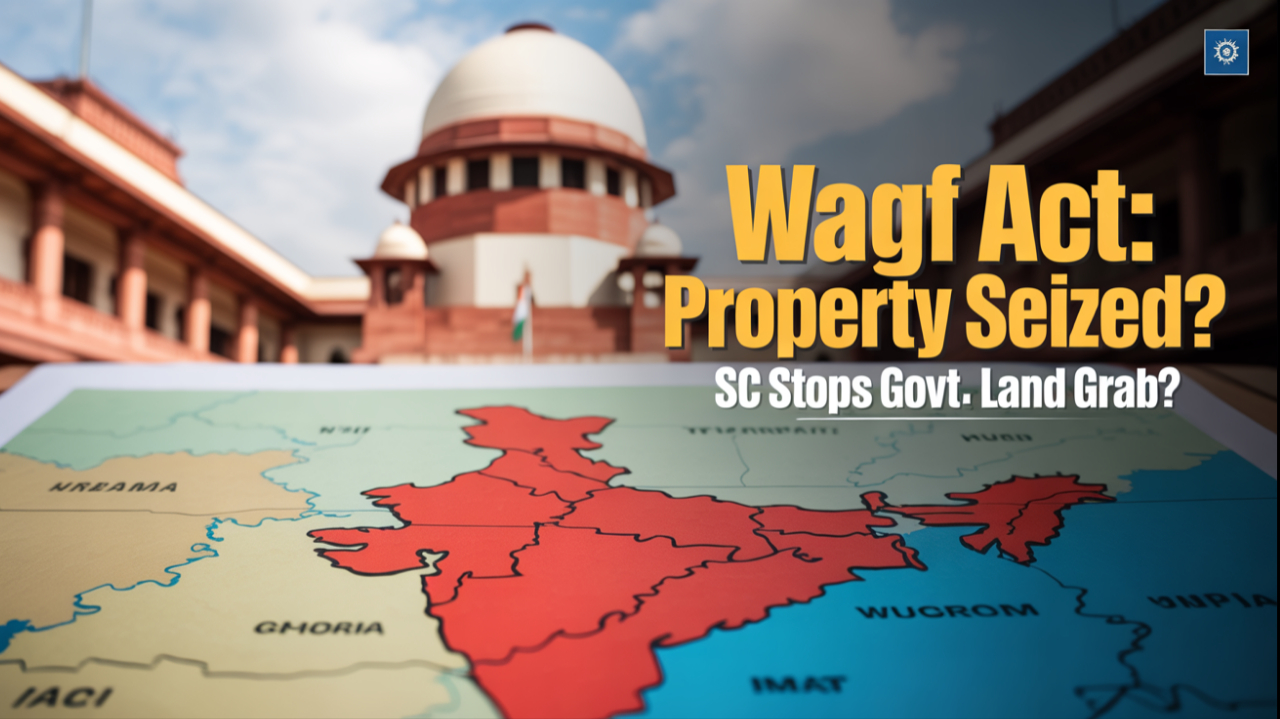New Delhi, September 16, 2025 — The Supreme Court of India has delivered a significant interim ruling, placing a stay on several contentious provisions of the Waqf (Amendment) Act, 2025. While the court has not stayed the entire Act, its decision marks a major legal setback for the government and a victory for petitioners who argued that the amendments violated core constitutional principles.
The Core of the Ruling
The Supreme Court’s verdict, issued on September 14, 2025, addresses concerns that certain sections of the new law could lead to arbitrary governance and undermine the judiciary’s authority. The interim order places a hold on two particularly significant provisions:
- The Five-Year Condition: The court stayed the rule requiring a person to have practiced Islam for at least five years to create a Waqf. The bench noted that without a clear framework for verification, this provision could lead to a highly arbitrary exercise of power.
- Government Authority over Land Disputes: A key provision allowing government officials to de-recognize Waqf land during encroachment disputes was also stayed. The Court’s ruling on this was firm, stating that such authority violates the doctrine of separation of powers and that the executive cannot dictate citizens’ property rights. Until a Waqf Tribunal or court makes a final ruling on the title, the status of the disputed land remains unchanged.
The Court also weighed in on the composition of Waqf councils. It ruled that the Central Waqf Council should not have more than four non-Muslim members, and State Waqf Boards should not exceed three.
The Court’s Rationale
The Supreme Court’s strong stand is rooted in its role as the protector of constitutional principles, particularly the separation of powers. The bench emphasized that the executive’s role is to implement laws, not to act as a quasi-judicial body to determine property rights. The judges acknowledged that while the amendments may have been intended to prevent the misuse of Waqf properties, the lack of a solid framework could pave the way for potential injustices.
The Remaining Provisions and Their Implications
While the interim ruling provides relief on several fronts, it is not a blanket stay on the Act. The Court has allowed several other provisions to remain in effect, including:
- The end of the “waqf by user” provision.
- The ban on creating waqfs over Scheduled Areas and ASI-protected monuments.
- The condition that only Muslims can create a waqf.
- The application of the Limitation Act to waqf disputes.
- The restrictions on family waqf (waqf-alal-aulad), which ensures the inheritance rights of heirs are not denied.
- The mandatory requirement for registration of all waqfs.
This outcome represents a significant victory for the petitioners, who argued that the amendments unfairly targeted the Muslim community. For the government, the ruling is a clear setback that forces it to re-evaluate its strategy to align with the Court’s constitutional expectations.
Conclusion and Outlook
In summary, the Supreme Court’s interim order has dealt a major blow to the Waqf (Amendment) Act, 2025, by halting key provisions deemed arbitrary or unconstitutional. The Court has affirmed its role in maintaining a balance of power and protecting citizens’ rights.
The legal battle over these amendments is far from over. The final hearing will delve deeper into the validity of the remaining provisions, and the verdict will have a lasting impact on how religious endowments are governed in India. We will continue to provide timely updates as this crucial legal saga unfolds.
